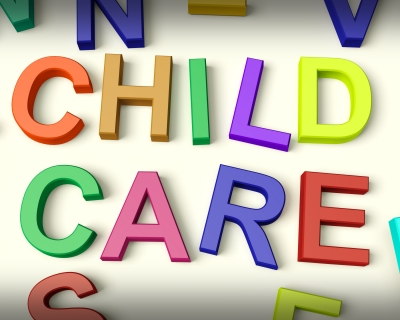
Do you have employees? Did you pay them during April, May or June? If yes, then you have payroll reports due for the 2nd quarter of this calendar year.
sssss
What if you didn’t pay any employees during April, May or June? If you have been filing these quarterly reports and did not tell the Internal Revenue Service that you stopped having employees, you have to file these reports for the second quarter, too. You will just report zero wages and zero withholdings.
sssss
There is nothing simple about the IRS. There is a little wrinkle here for some employers. If you have been given permission to file an annual 944 instead of the quarterly 941, you may just have quarterly state reports to file.
sssss
But for most of us, you now know July 31st is the due date for Q2 (second quarter) payroll reports. Not just the reports, but the payments due with them, also.
sssss
It is easier for some people to work with numbers. I am a number cruncher. I prepare reports for my own company and I prepare reports for several business clients. All my payroll clients have to do is tell me the details.
sssss
The details are not difficult. they give me a list of employees with their names, addresses and social security numbers. MAJOR TIP: Never write anyone any paycheck until you have this information AND you have their completed form I-9.
sssss
For every paydate, I need the following information. 1) the name of the employee, 2) the amount of the check, 3) the amounts withheld and for what.
sssss
The amount you wrote the check for is called the “net” check. “Net” take-home pay is AFTER deductions. The amount of the paycheck BEFORE deductions is called “gross” paycheck. I need to know how much you withheld for each of the taxes your employee may be subject to.
sssss
Taxes must be withheld from each employee’s paycheck. These taxes start with the employee’s one-half of social security and medicare taxes. Based on the employees gross check they may also have federal income taxes withheld. And if you pay workers who live in a state that has stare income tax, you may also be withholding state income taxes.
sssss
You may have other employee benefits that the employee pays for out of his check. An example of this could be the tools a mechanic buys for his job that he pays for out of his paycheck. This deduction does not change what he makes, but it does change what he takes home.
sssss
When it comes to social security and medicare taxes, the employee is only responsible to pay half. YOU, the employer, pay the other half of these two taxes. If you fail to withhold these taxes from your employee’s pay, you are responsible to pay the WHOLE amount. You can wind up paying both halves when you don’t withhold from the employee.
sssss
You, the employer, are also responsible for paying federal unemployment taxes. You may send a payment every quarter, but this report is not due until the end of the year. Your state, however, may have a report and payment due each quarter.
sssss
What’s next? File your reports and pay the taxes due for Q2 before July 31st to avoid penalties and interest for late filing and/or late payment.
 Last month I told you about my travel adventure with Stephen E, AKA Steve E. “AKA” is police lingo short for “also known as”.
You don’t want any mix-up with your identity, or with the identity of your dependents, when it comes to your income tax return!
Today it seems a newborn baby gets their social security number before they leave the hospital. What about a baby born at home? The important point is that any parent wanting to claim that new little bundle of joy must include the child’s social security number on the tax return.
When I add that baby to the return I also track the date of birth so we can claim every tax credit available. And different taxes apply to different taxpayers depending on their ages.
When you file your tax return you enter your name, address and social security number, or SSN. When you file a joint return with your spouse, you put both names and social security numbers. One person’s name and SSN are listed first. The other person’s name and SSN are listed second.
The name and number listed first is called the PRIMARY taxpayer. The other person is called the SECONDARY taxpayer. This does NOT mean that one is better than the other.
Remember this when you first marry: You can CHOOSE whose name and number goes first. The primary taxpayer is not always the male of the couple. But once you decide that HER name is going first, don’t change that order next year or any other year. That will just buy you trouble from the Internal Revenue Service. They might be expecting a tax return from HER next year and not be able to find any record. Then you get your letter asking to explain everything.
Other important numbers required for your tax return could include the daycare provider’s SSN. If that daycare provider is operating as a business they may have an EIN, Employer Identification Number.
With electronic filing of the income tax returns, name and number mismatch (when things don’t match up) can cause what is known as a reject. Something must be corrected before we can file that return. If someone has stolen your identity or the identity of your dependent, that can cause very inconvenient delays of your refund.
One year a return was rejected because the dependent’s name and SSN did not match. The IRS had just begun matching tax return identities with Social Security records. I called my taxpayer, let’s call him Mr Smith. I learned that for years I had been filing the return for Mr and Mrs Smith and their daughter, Ms Smith. But the daughter was MRS Smith’s daughter. And Ms Smith was really Ms Jones. The adoption was never legally finalized, the SSN records had never been changed and the tax return was rejected. We then mailed the return in with the explanation. Mr Smith’s nerve-wracking situation could have been avoided if he had just understood the importance of telling me the whole truth for his tax return.
Identity theft can also bring about other legal problems. If you find yourself in that position, please contact me so I can talk with you about what action you might want to take next.
Last month I told you about my travel adventure with Stephen E, AKA Steve E. “AKA” is police lingo short for “also known as”.
You don’t want any mix-up with your identity, or with the identity of your dependents, when it comes to your income tax return!
Today it seems a newborn baby gets their social security number before they leave the hospital. What about a baby born at home? The important point is that any parent wanting to claim that new little bundle of joy must include the child’s social security number on the tax return.
When I add that baby to the return I also track the date of birth so we can claim every tax credit available. And different taxes apply to different taxpayers depending on their ages.
When you file your tax return you enter your name, address and social security number, or SSN. When you file a joint return with your spouse, you put both names and social security numbers. One person’s name and SSN are listed first. The other person’s name and SSN are listed second.
The name and number listed first is called the PRIMARY taxpayer. The other person is called the SECONDARY taxpayer. This does NOT mean that one is better than the other.
Remember this when you first marry: You can CHOOSE whose name and number goes first. The primary taxpayer is not always the male of the couple. But once you decide that HER name is going first, don’t change that order next year or any other year. That will just buy you trouble from the Internal Revenue Service. They might be expecting a tax return from HER next year and not be able to find any record. Then you get your letter asking to explain everything.
Other important numbers required for your tax return could include the daycare provider’s SSN. If that daycare provider is operating as a business they may have an EIN, Employer Identification Number.
With electronic filing of the income tax returns, name and number mismatch (when things don’t match up) can cause what is known as a reject. Something must be corrected before we can file that return. If someone has stolen your identity or the identity of your dependent, that can cause very inconvenient delays of your refund.
One year a return was rejected because the dependent’s name and SSN did not match. The IRS had just begun matching tax return identities with Social Security records. I called my taxpayer, let’s call him Mr Smith. I learned that for years I had been filing the return for Mr and Mrs Smith and their daughter, Ms Smith. But the daughter was MRS Smith’s daughter. And Ms Smith was really Ms Jones. The adoption was never legally finalized, the SSN records had never been changed and the tax return was rejected. We then mailed the return in with the explanation. Mr Smith’s nerve-wracking situation could have been avoided if he had just understood the importance of telling me the whole truth for his tax return.
Identity theft can also bring about other legal problems. If you find yourself in that position, please contact me so I can talk with you about what action you might want to take next.  Last month I told you about my travel adventure with Stephen E, AKA Steve E. “AKA” is police lingo short for “also known as”.
You don’t want any mix-up with your identity, or with the identity of your dependents, when it comes to your income tax return!
Today it seems a newborn baby gets their social security number before they leave the hospital. What about a baby born at home? The important point is that any parent wanting to claim that new little bundle of joy must include the child’s social security number on the tax return.
When I add that baby to the return I also track the date of birth so we can claim every tax credit available. And different taxes apply to different taxpayers depending on their ages.
When you file your tax return you enter your name, address and social security number, or SSN. When you file a joint return with your spouse, you put both names and social security numbers. One person’s name and SSN are listed first. The other person’s name and SSN are listed second.
The name and number listed first is called the PRIMARY taxpayer. The other person is called the SECONDARY taxpayer. This does NOT mean that one is better than the other.
Remember this when you first marry: You can CHOOSE whose name and number goes first. The primary taxpayer is not always the male of the couple. But once you decide that HER name is going first, don’t change that order next year or any other year. That will just buy you trouble from the Internal Revenue Service. They might be expecting a tax return from HER next year and not be able to find any record. Then you get your letter asking to explain everything.
Other important numbers required for your tax return could include the daycare provider’s SSN. If that daycare provider is operating as a business they may have an EIN, Employer Identification Number.
With electronic filing of the income tax returns, name and number mismatch (when things don’t match up) can cause what is known as a reject. Something must be corrected before we can file that return. If someone has stolen your identity or the identity of your dependent, that can cause very inconvenient delays of your refund.
One year a return was rejected because the dependent’s name and SSN did not match. The IRS had just begun matching tax return identities with Social Security records. I called my taxpayer, let’s call him Mr Smith. I learned that for years I had been filing the return for Mr and Mrs Smith and their daughter, Ms Smith. But the daughter was MRS Smith’s daughter. And Ms Smith was really Ms Jones. The adoption was never legally finalized, the SSN records had never been changed and the tax return was rejected. We then mailed the return in with the explanation. Mr Smith’s nerve-wracking situation could have been avoided if he had just understood the importance of telling me the whole truth for his tax return.
Identity theft can also bring about other legal problems. If you find yourself in that position, please contact me so I can talk with you about what action you might want to take next.
Last month I told you about my travel adventure with Stephen E, AKA Steve E. “AKA” is police lingo short for “also known as”.
You don’t want any mix-up with your identity, or with the identity of your dependents, when it comes to your income tax return!
Today it seems a newborn baby gets their social security number before they leave the hospital. What about a baby born at home? The important point is that any parent wanting to claim that new little bundle of joy must include the child’s social security number on the tax return.
When I add that baby to the return I also track the date of birth so we can claim every tax credit available. And different taxes apply to different taxpayers depending on their ages.
When you file your tax return you enter your name, address and social security number, or SSN. When you file a joint return with your spouse, you put both names and social security numbers. One person’s name and SSN are listed first. The other person’s name and SSN are listed second.
The name and number listed first is called the PRIMARY taxpayer. The other person is called the SECONDARY taxpayer. This does NOT mean that one is better than the other.
Remember this when you first marry: You can CHOOSE whose name and number goes first. The primary taxpayer is not always the male of the couple. But once you decide that HER name is going first, don’t change that order next year or any other year. That will just buy you trouble from the Internal Revenue Service. They might be expecting a tax return from HER next year and not be able to find any record. Then you get your letter asking to explain everything.
Other important numbers required for your tax return could include the daycare provider’s SSN. If that daycare provider is operating as a business they may have an EIN, Employer Identification Number.
With electronic filing of the income tax returns, name and number mismatch (when things don’t match up) can cause what is known as a reject. Something must be corrected before we can file that return. If someone has stolen your identity or the identity of your dependent, that can cause very inconvenient delays of your refund.
One year a return was rejected because the dependent’s name and SSN did not match. The IRS had just begun matching tax return identities with Social Security records. I called my taxpayer, let’s call him Mr Smith. I learned that for years I had been filing the return for Mr and Mrs Smith and their daughter, Ms Smith. But the daughter was MRS Smith’s daughter. And Ms Smith was really Ms Jones. The adoption was never legally finalized, the SSN records had never been changed and the tax return was rejected. We then mailed the return in with the explanation. Mr Smith’s nerve-wracking situation could have been avoided if he had just understood the importance of telling me the whole truth for his tax return.
Identity theft can also bring about other legal problems. If you find yourself in that position, please contact me so I can talk with you about what action you might want to take next. 








 How can you play to win if you don’t know the rules? I have always focused on how to do things correctly. I want to know the rules of the games I play so I can play to win. And that’s what I want to give you, also.
When I was in law enforcement, I learned that there are some people who will never want to knowingly break the law. There are others who want to know what they can do to bend the rules. They don’t really want to break the law, but they don’t want to follow the straight and narrow path, either. And there are others who might have cared at one time, but don’t care anymore and they just want what they want. They care about themselves. They don’t think of anyone else involved.
The Internal Revenue Service is often in the news. But usually that news is to tell us, the tax-paying public, the changes in the tax law. Tax season is the time when the IRS wants to spotlight public figures who have done something wrong tax-wise. They get mileage out of these stories in trying to help the law-bending public understand the penalty of breaking the tax laws.
Tax season is never over. But today it is after April 15th. And the IRS is in the news again. This time IRS is the one in the spotlight. Somebody done somebody else wrong. We are being told that the IRS targeted specific groups. They did what some police people are accused of doing. They used profiling. They were on the lookout for groups that appeared to be more conservative than others. IRS is accused of denying or delaying the applications of groups wanting tax-exempt status.
The first group I think of as tax-exempt is religious. Other tax-exempt groups include scientific, literary and other charitable organizations. There are hundreds of other tax-exempt groups. Like social groups and fraternal societies, veterans organizations, political organizations. Don’t forget homeowners associations.
I’m not here to defend the IRS. I am just sharing with you some of what I learned as their former employee. When I was an auditor-in-training I was learning the ropes of the job of income tax auditor. What was my job? How do I do it well? As an employee of the federal government I had an honorable job and I wanted to do it well. It was the auditor’s job to see that the law was properly applied.
Even then, the IRS wanted me to know the penalty for stepping over the line. They have their own internal affairs division. IRS wants their employees to do their job properly. And if an employee chooses to cross the line, there is a penalty to pay. In most jobs those penalties may include time off without pay, demotion to a lower pay grade position, and even dismissal. Heads will roll.
Why does it take so long to discover this bad news? It takes time for cream to rise and It takes time for dust to settle. Before any case can be brought to trial, first someone has to be found out. Then evidence must be collected. Only the TV crime show can solve a case in 60 minutes.
When this kind of bad news goes viral, we can be glad to know that the system does work. Yes, one bad apple will spoil the whole barrel. That apple is removed. The barrel gets washed out. We begin again.
The IRS is here to stay. They are not going away. I play by the rules. When the rules change, I have to change my game plan. I hope I can help you, too.
Always to your lowest legal tax,
Nellie T Williams, EA
How can you play to win if you don’t know the rules? I have always focused on how to do things correctly. I want to know the rules of the games I play so I can play to win. And that’s what I want to give you, also.
When I was in law enforcement, I learned that there are some people who will never want to knowingly break the law. There are others who want to know what they can do to bend the rules. They don’t really want to break the law, but they don’t want to follow the straight and narrow path, either. And there are others who might have cared at one time, but don’t care anymore and they just want what they want. They care about themselves. They don’t think of anyone else involved.
The Internal Revenue Service is often in the news. But usually that news is to tell us, the tax-paying public, the changes in the tax law. Tax season is the time when the IRS wants to spotlight public figures who have done something wrong tax-wise. They get mileage out of these stories in trying to help the law-bending public understand the penalty of breaking the tax laws.
Tax season is never over. But today it is after April 15th. And the IRS is in the news again. This time IRS is the one in the spotlight. Somebody done somebody else wrong. We are being told that the IRS targeted specific groups. They did what some police people are accused of doing. They used profiling. They were on the lookout for groups that appeared to be more conservative than others. IRS is accused of denying or delaying the applications of groups wanting tax-exempt status.
The first group I think of as tax-exempt is religious. Other tax-exempt groups include scientific, literary and other charitable organizations. There are hundreds of other tax-exempt groups. Like social groups and fraternal societies, veterans organizations, political organizations. Don’t forget homeowners associations.
I’m not here to defend the IRS. I am just sharing with you some of what I learned as their former employee. When I was an auditor-in-training I was learning the ropes of the job of income tax auditor. What was my job? How do I do it well? As an employee of the federal government I had an honorable job and I wanted to do it well. It was the auditor’s job to see that the law was properly applied.
Even then, the IRS wanted me to know the penalty for stepping over the line. They have their own internal affairs division. IRS wants their employees to do their job properly. And if an employee chooses to cross the line, there is a penalty to pay. In most jobs those penalties may include time off without pay, demotion to a lower pay grade position, and even dismissal. Heads will roll.
Why does it take so long to discover this bad news? It takes time for cream to rise and It takes time for dust to settle. Before any case can be brought to trial, first someone has to be found out. Then evidence must be collected. Only the TV crime show can solve a case in 60 minutes.
When this kind of bad news goes viral, we can be glad to know that the system does work. Yes, one bad apple will spoil the whole barrel. That apple is removed. The barrel gets washed out. We begin again.
The IRS is here to stay. They are not going away. I play by the rules. When the rules change, I have to change my game plan. I hope I can help you, too.
Always to your lowest legal tax,
Nellie T Williams, EA